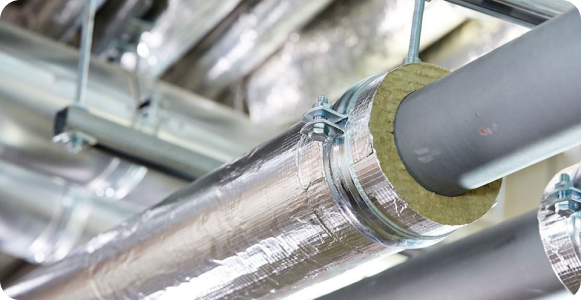- Home
- About
- ProductsMenu Close
- GEO TEXTILE FABRIC
- WMP 50
- WMP 10
- REFLECTIVE ALUMINIUM FOIL
- BLACKGLASS TISSUE, BGT
- FIBERGLASS TISSUE, FGT
- PERFORATED SHEET
- DOUBLE SIDE FSK
- HEXAGONAL WIREMESH-GI
- WHITE GLASS CLOTH
- ALUMINUM BUBBLE FOIL
- ALUMINIUM FOIL GLASS LAMINATION
- ALUMINIUM FOIL FACING
- DOUBLE SIDE FSK
- BLACK GLASS CLOTH, BGC
- ALU GLASS CLOTH
- GEO TEXTILE FABRIC
- WMP 50
- WMP 10
- REFLECTIVE ALUMINIUM FOIL
- BLACKGLASS TISSUE, BGT
- FIBERGLASS TISSUE, FGT
- PERFORATED SHEET
- DOUBLE SIDE FSK
- HEXAGONAL WIREMESH-GI
- WHITE GLASS CLOTH
- ALUMINUM BUBBLE FOIL
- ALUMINIUM FOIL GLASS LAMINATION
- ALUMINIUM FOIL FACING
- DOUBLE SIDE FSK
- BLACK GLASS CLOTH, BGC
- ALU GLASS CLOTH
Menu CloseMenu CloseMenu Close - Brands
- Applications
- Resources
- Case Studies
- Careers
- Contact
- Home
- About
- ProductsMenu Close
- GEO TEXTILE FABRIC
- WMP 50
- WMP 10
- REFLECTIVE ALUMINIUM FOIL
- BLACKGLASS TISSUE, BGT
- FIBERGLASS TISSUE, FGT
- PERFORATED SHEET
- DOUBLE SIDE FSK
- HEXAGONAL WIREMESH-GI
- WHITE GLASS CLOTH
- ALUMINUM BUBBLE FOIL
- ALUMINIUM FOIL GLASS LAMINATION
- ALUMINIUM FOIL FACING
- DOUBLE SIDE FSK
- BLACK GLASS CLOTH, BGC
- ALU GLASS CLOTH
- GEO TEXTILE FABRIC
- WMP 50
- WMP 10
- REFLECTIVE ALUMINIUM FOIL
- BLACKGLASS TISSUE, BGT
- FIBERGLASS TISSUE, FGT
- PERFORATED SHEET
- DOUBLE SIDE FSK
- HEXAGONAL WIREMESH-GI
- WHITE GLASS CLOTH
- ALUMINUM BUBBLE FOIL
- ALUMINIUM FOIL GLASS LAMINATION
- ALUMINIUM FOIL FACING
- DOUBLE SIDE FSK
- BLACK GLASS CLOTH, BGC
- ALU GLASS CLOTH
Menu CloseMenu CloseMenu Close - Brands
- Applications
- Resources
- Case Studies
- Careers
- Contact
Marine Insulation Case Study- Engine Room Insulation Solved
Optimizing Marine Vessel Insulation with MFMB Rigid Boards

Problem
A shipbuilding company faced significant challenges with thermal and acoustic insulation in marine vessels. The extreme conditions at sea demanded materials that could withstand harsh environments, including high humidity, salt spray, and variable temperatures. The primary issues were:
Thermal Insulation
Heat transfer from engine rooms and piping systems was causing discomfort in crew and passenger areas
Noise Pollution
Engine vibrations, machinery operations, and external noises from the sea were creating an unpleasant onboard environment.
Fire Safety
Compliance with marine fire safety regulations required insulation materials with high fire resistance.
Durability
Prolonged exposure to moisture and salt led to degradation of traditional insulation materials.
Solution
Adoption of MFMB Rigid Boards
The company adopted MFMB (Mineral Fiber Marine Board) rigid boards for marine applications. These boards, made of mineral fibers bonded with thermosetting resins, offered a combination of superior thermal insulation, acoustic properties, and durability:
Effective Thermal Insulation
MFMB boards have low thermal conductivity, effectively minimizing heat transfer and maintaining comfortable temperatures.
Acoustic Dampening
The dense structure of the boards absorbed sound waves, significantly reducing noise levels from engines and external sources.
Fire Resistance
The non-combustible mineral fiber composition met international fire safety standards for marine applications (IMO certification).
Moisture Resistance
The hydrophobic properties of MFMB boards prevented water absorption, avoiding damage from saltwater and humidity.
Structural Strength
The rigid design provided stability and durability, ensuring long-term performance in demanding conditions.
Implementation
Application Areas
MFMB rigid boards were used in:
- Engine room bulkheads and ceilings
- Thermal and acoustic insulation of ducts and piping
- Living quarters and control room walls
Installation Process
The boards were cut to fit specific dimensions and securely installed using mechanical fasteners and marine-grade adhesives. Seams were sealed to ensure continuous insulation.
Outcome
The integration of MFMB rigid boards brought measurable improvements:
Improved Thermal Comfort
The heat transfer from engine rooms to living areas was reduced by 40%, improving onboard comfort for crew and passengers.
Noise Reduction
Noise levels in living and operational areas were reduced by 30%, creating a quieter and more pleasant environment.
Enhanced Fire Safety
The fire-resistant properties of MFMB boards ensured compliance with marine fire safety regulations, improving onboard safety.
Longevity and Reliability
The moisture-resistant design eliminated damage from saltwater and high humidity, extending insulation lifespan by 25%.
Cost Efficiency
Reduced maintenance and replacement needs lowered overall operational costs by 20% annually.
Conclusion
MFMB rigid boards proved to be a highly effective solution for thermal and acoustic insulation in marine environments. By addressing challenges related to heat, noise, fire safety, and durability, these boards enhanced the safety, comfort, and efficiency of the company’s vessels. This case highlights the role of MFMB rigid boards as a reliable and robust material for marine insulation applications.
